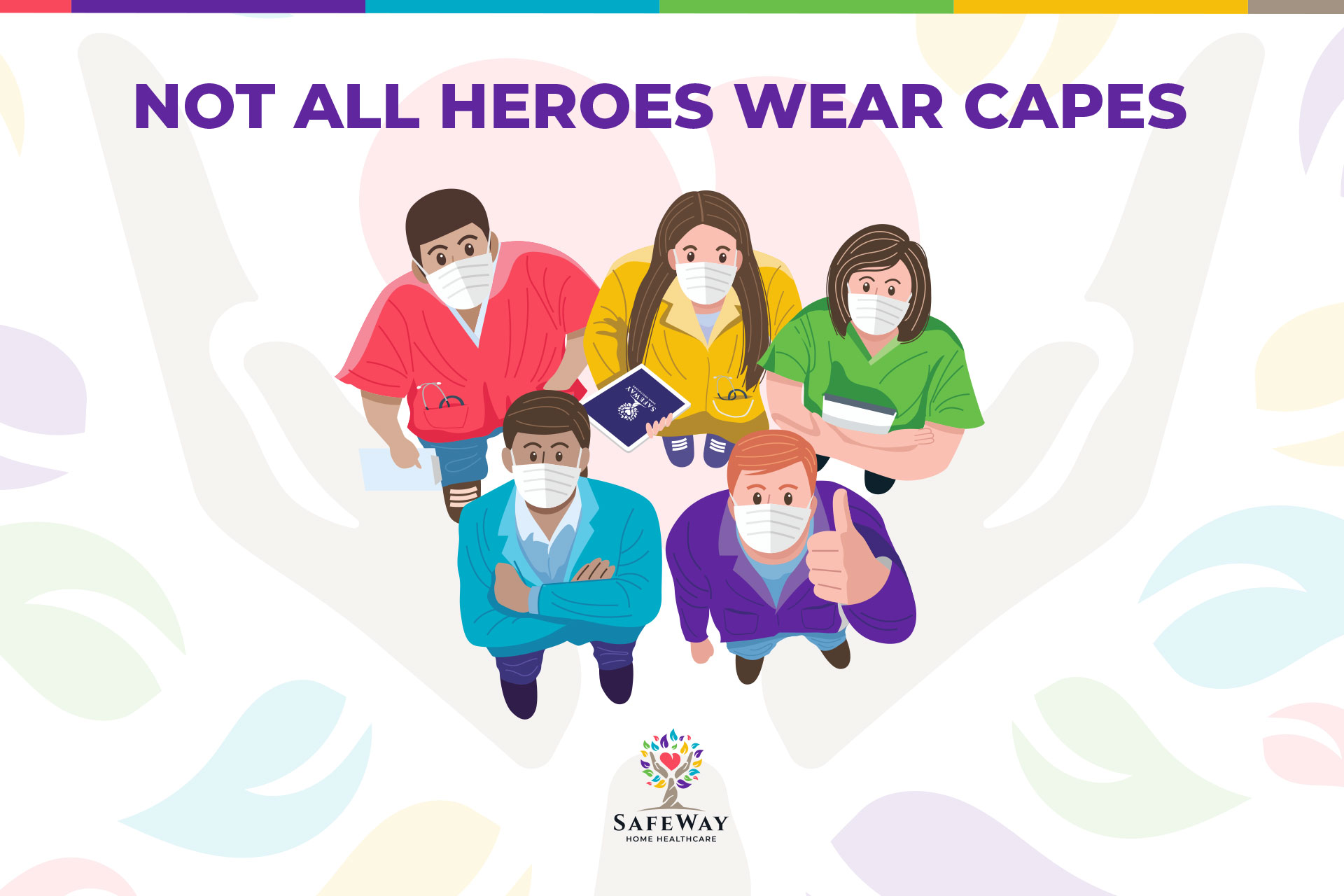Table Of Contents
Respite Care for Caregivers: Understanding the Needs, Benefits & Options
- Introduction to Respite Care in the Twin Cities
- Why Caregivers Need a Break: The Mental and Physical Toll of Caregiving ○ Benefits of Respite Care in the Twin Cities
- Understanding the Types of Respite Care in Twin Cities
- How to Find the Right Respite Care in Twin Cities? Safeway Home Healthcare Services Can Help.
- The Vital Role of Caregiver Self-Care in Our Community
Key Takeaways
- Demographic trends show an increase in the aging population of Minnesota with subsequent high demand for caregiver services that support these individuals.
- Respite care is a valuable service that provides short-term, highly-trained assistance to maintain a quality continuum of care for recipients while allowing caregivers or families to take a break.
- Safeway Home Healthcare Services prioritizes our clients’ safety, independence and overall wellbeing and builds connections with the families we serve.
- We tailor respite care services to individual family needs and work collaboratively to fi nd funding solutions that promote positive outcomes.

Introduction to Respite Care in the Twin Cities
Minneapolis, St. Paul and surrounding cities are outstanding metropolitan areas many families call home. Statistics show that while the area is growing and thriving, there is an increasingly aging population throughout our Twin Cities. In fact, by 2025, there will be more people over 65 in Minnesota than school-aged children. As they enter their later years, many of these older adults will need care or assistance for daily needs and quality of life.
It is worth noting that an additional unique trend in the Twin Cities impacts care for the aging population. Soon, there will be 2 retirement-aged adults for every 5 working Minnesotans. This will create an imbalance between those who need care and those who can provide care. In fact, most working-aged Minnesotans will be simultaneously balancing:
- Work duties
- Home responsibilities
- Child care
- Aging family members
The stress of managing just one of these components is heavy enough.

What is Respite Care?
Throughout a lifetime, it is natural for aging adults to require some level of assistance with day-to-day tasks or help navigating through their health challenges. As this inevitable shift occurs, many caregiving responsibilities fall on family members.
Depending on the situation, family members often assist with their loved one’s hygiene, errands, medical care, activities of daily living, housekeeping and more. The fact is that family caregivers become integral partners in providing necessary extra hands to get things done. While many families function well for long periods in these circumstances, the process can become exhausting, and caregiver burnout is real and very taxing.
Respite care off ers short-term necessary relief for primary caregivers like family members or friends taking care of their aging community. It can be any length of time, from just an afternoon to several days or weeks.
Based on the current demographic trends, we expect more of our Twin Cities population to require substantial care in the upcoming years. Ultimately, resources will be stretched thin.
In light of these trends, we at Safeway Home Healthcare expect Minneapolis area respite care and respite care resources to be in high demand, and we’re happy to off er them.
Why Caregivers Need a Break: The Mental and Physical Toll of Caregiving
When older adults transition into a homebound situation, they often rely on someone else, usually a family member, to keep them safe, healthy and thriving. Studies show that caregivers spend 23.7 hours a week providing unpaid care for loved ones who live nearby. Living with their care recipient increases responsibilities to almost 40 hours a week.
Having full-time caregiving responsibilities in an already busy life is stressful. When a loved one needs high-intensity care, such as in cases of dementia, the necessary efforts, stress and anxiety skyrocket.
It is important to recognize that caregiver mental health and wellbeing are essential to long-term success in a caregiver/care recipient relationship. Family members should give themselves grace and accept that there may be challenges with continuing this cycle for too long.
Respite care provides highly-trained support that optimizes a healthy and fulfilling life for both caregiver and recipient.
Benefits of Respite Care in the Twin Cities
There are numerous emotional, physical and psychological benefits to respite care. In reality, caregiving for a homebound, ill, or debilitated individual requires a great deal of mental and physical stamina and takes a substantial amount of time. It’s no surprise that caregivers can become overwhelmed trying to manage their busy lives in a demanding caregiving role.
Sometimes, getting a break feels impossible. Caregivers can then struggle with feelings of guilt associated with leaving their loved one. When a family finds a highly qualified respite caregiver, there is a positive impact for all involved. Some of the benefits of respite care for caregivers include:
- Peace of mind to relax and recharge
- Ability to spend some time with friends and family
- Time to get errands done
- Feel confident their loved one is safe and supported
- Boost energy to feel better and provide care to the fullest
When relying on respite care, caregivers have time to tend to their own personal, emotional or physical needs. The care recipient remains safe and cared for, even enjoying social interactions that bring new perspectives into days that could have previously felt monotonous.
Respite care provides a continuity of care to an individual while allowing the caregiver to take that necessary break. Respite care can range from several hours to several days, and the goal is to optimize the individual’s safety, function and wellbeing.

Understanding the Types of Respite Care in Twin Cities
Several types of respite care are available for families needing caregiver services, and in many cases, respite care funding is available. When a relative provides most care to a loved one and is not paid or paid very little, respite care coverage can ensure continuity of care when the caregiver needs to be away.
Here’s a look at the two main types of respite care available in our community.
1. In-Home Respite: An Inside Look
When a family member needs assistance and support, and the caregiver needs a break, in-home respite care is a possible solution. In-home respite care provides an individual’s necessary services. These include:
- Meal prep
- Personal hygiene
- Toileting
- Medical care
Certified nursing assistants or visiting nurses can take on the role of primary caregiver for several hours or several days, including overnight, depending on the family’s needs.
The truth is that family caregivers often balance multiple priorities and stressors of their own. When caregivers can find qualified and caring support for their loved ones, they can recharge and refocus their energies to meet their own needs. The solution is a win/win all around.
Caregivers get the break they deserve, and loved ones receive thorough and dependable care in the comfort of their own homes.
2. Out-of-Home Respite: Beyond the Comfort of One’s Home
In certain situations, individuals’ needs are better met in an out-of-home setting, such as a hospital, personal care home or assisted living facility. These licensed settings provide respite to the caregiver and ensure the family member’s needs are under clinical supervision around the clock.
Other options include unlicensed settings, like a mall, community park or library, or even in a respite care provider’s home. In these situations, a respite care provider can oversee and assist the loved one out of the house while the primary caregiver tends to their other priorities.
How to Find the Right Respite Care in Twin Cities? Safeway Home Healthcare Services Can Help.
As leaders in Roseville Respite Care, Saint Paul Respite Care and Minneapolis Respite Care, we provide trusted and high-quality services to families across the Twin Cities. We meet every individual’s unique needs and preferences and offer flexible, dependable care when you need us.
As a provider, we prioritize our clients’ safety, independence and overall wellbeing and build connections with the families we serve. Everyone deserves to live a life to the fullest, including the clients we help and the caregivers we support.
While many services focus on elderly, homebound clients, we also assist families caring for high-medical needs children or adults with long-term disabilities.
If you are still determining if your situation qualifies for respite care services in the Twin Cities, our 245D Service Coordinator can help you assess your options. Many clients have coverage through Medical Assistance Home or waiver programs.

The Vital Role of Caregiver Self-Care in Our Community
With almost one million Minnesotans over 65, Safeway Home Healthcare Services remains firmly committed to the continual growth of our respite care program that provides foundational care to the people of our communities.
While we recognize that family caregivers are vital in-home care providers for the aging population, we remain steadfastly available to optimize the quality of life of care recipients and caregivers who need us.
If you are a caregiver, we encourage you to seek resources for respite care. We’re happy to walk you through options that can meet the needs of your particular situation.
For respite care in the Twin Cities area, contact us to explore how we can help you and your loved one live life to the fullest.
Share
Subscribe To Our Newsletter
Safeway HHC Contributors
Our dedicated team of home health care professionals works closely with clients and their families to develop a personalized care plan that reflects their values and priorities. We strive to empower our clients to take an active role in their care and to make informed decisions about their health and well-being.
Related News
April 11, 2024
Trauma and Keo, a Licensed Clinical Counselor
Cultural stigma, misunderstanding, language barriers, financial constraints,…
April 2, 2024
Dr. Abe: A Mental Health Leader for a Community in Need
Whether new arrivals, permanent residents, or naturalized citizens, African…
November 28, 2022
Our Agency’s Commitment To Home Care Workers
Home care workers play a crucial role in the lives of many individuals,…


